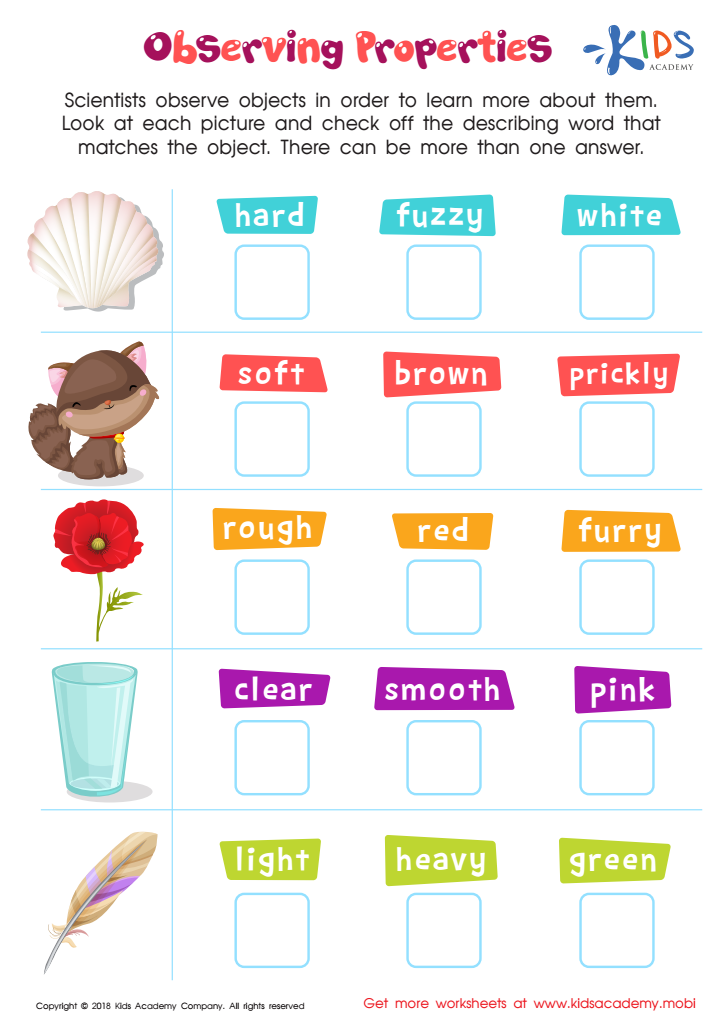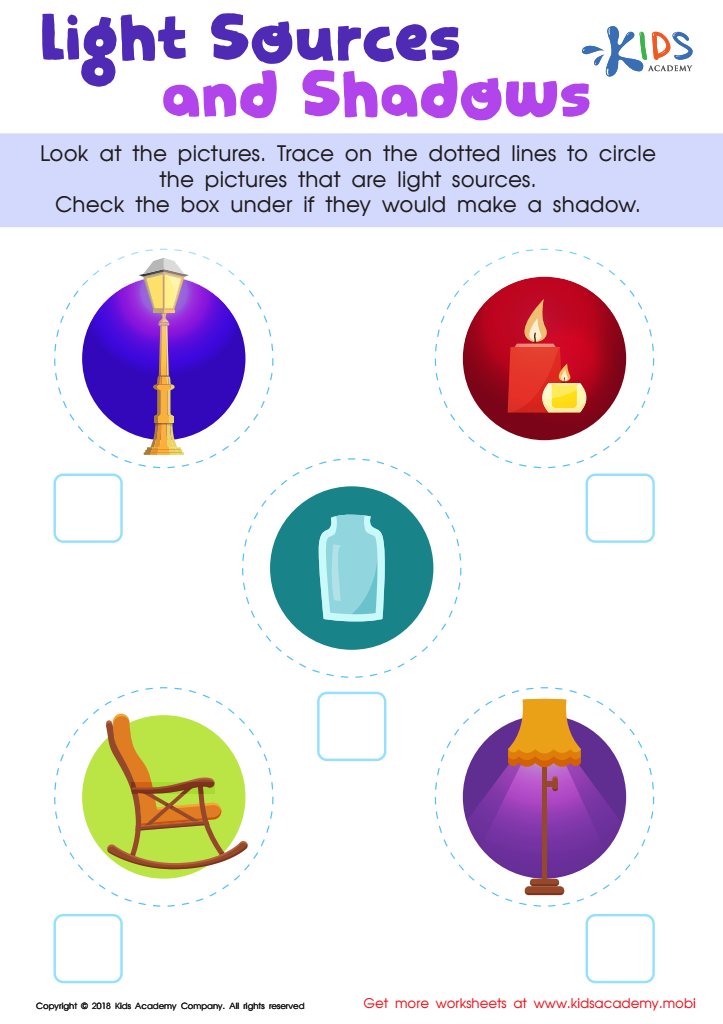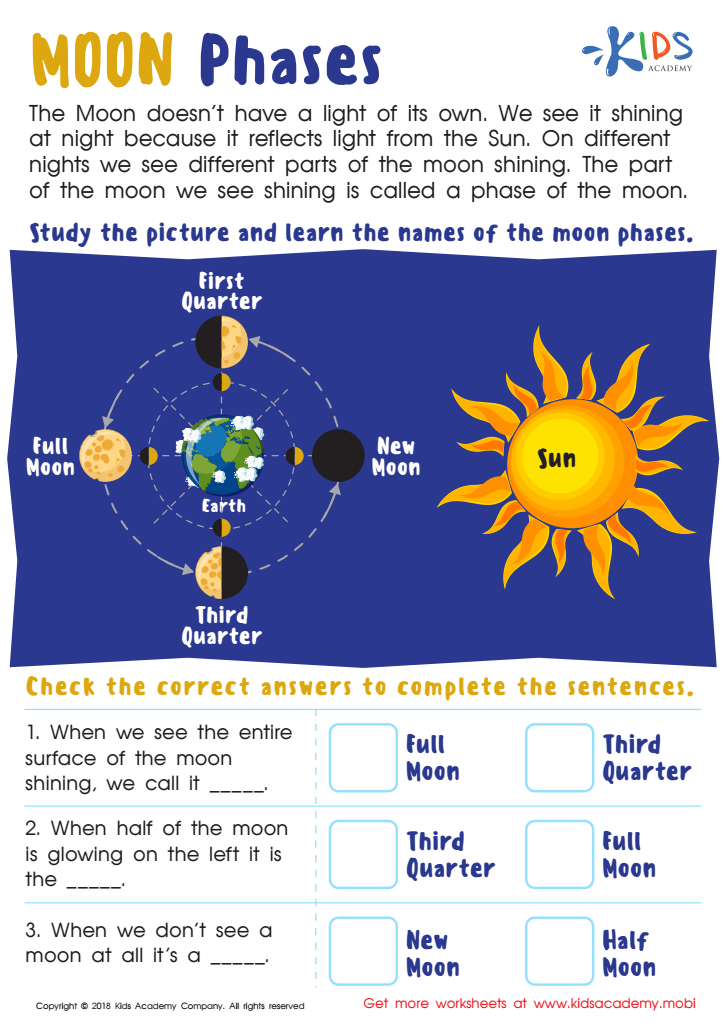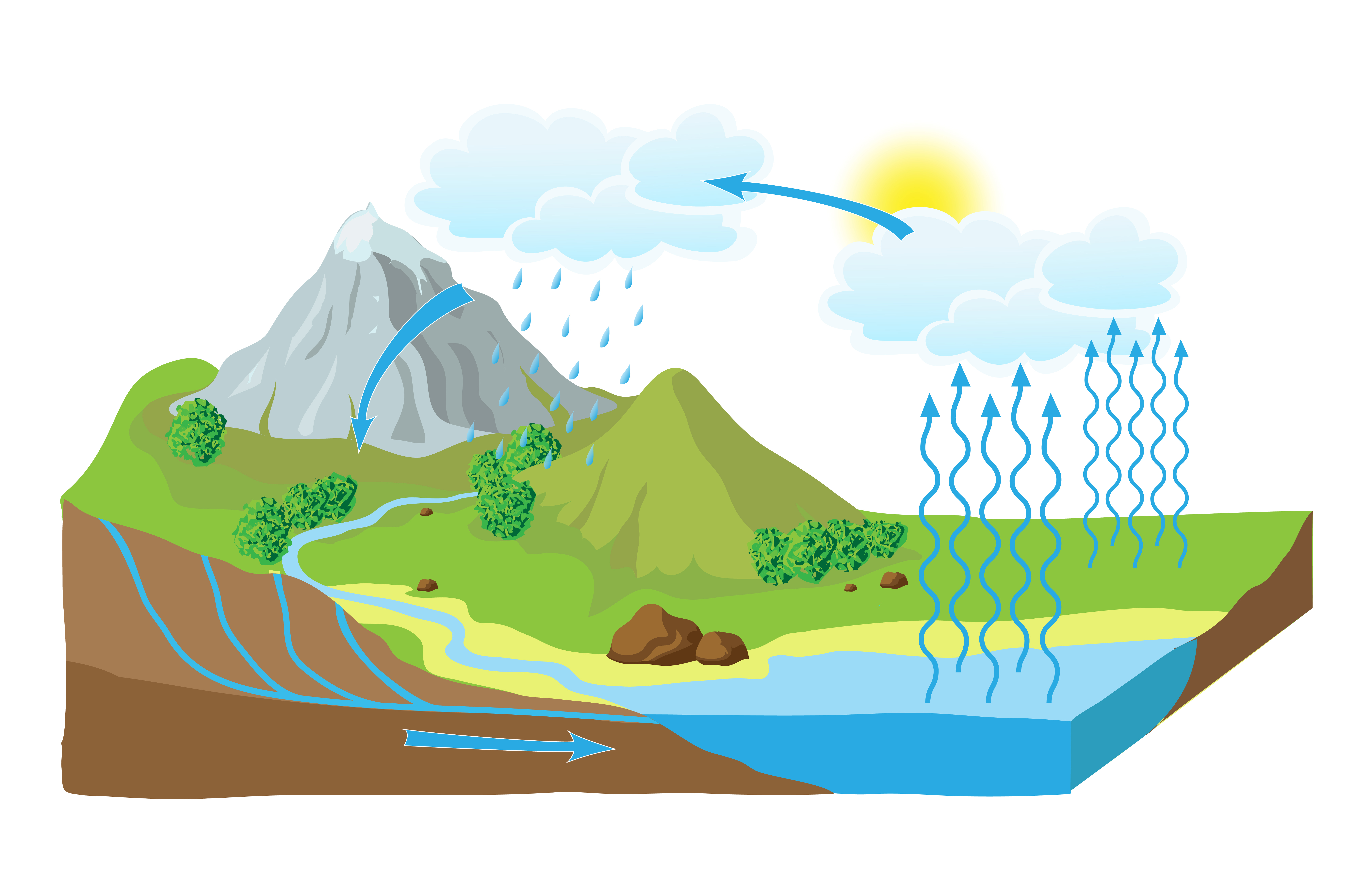Observational skills Physical Science Worksheets for Ages 6-7
3 filtered results
-
From - To
Boost your child's curiosity and scientific thinking with our Observational Skills Physical Science Worksheets for Ages 6-7! These engaging worksheets are expertly designed to enhance young learners' ability to observe, record, and analyze physical phenomena. Featuring fun, hands-on activities, kids will explore concepts such as push and pull, states of matter, and light reflection, all while developing critical-thinking and problem-solving skills. Perfect for classroom use or home learning, these worksheets provide a solid foundation in physical science, helping children to see the world like young scientists. Turn observations into discoveries today!


Observing Properties Worksheet


Light Sources and Shadows Worksheet


Moon Phases Worksheet
Parents and teachers should prioritize cultivating observational skills in physical science for children aged 6-7 because these skills lay the foundational blocks for scientific thinking and lifelong learning. At this age, children are naturally curious and more perceptive of their environment, making it an ideal time to harness their observational abilities.
Strengthening observational skills helps children pay attention to detail, notice patterns, and make connections between cause and effect. These skills not only aid in understanding physical science concepts, such as the properties of materials and the basics of force and motion, but also enhance critical thinking and problem-solving abilities, which are essential across all subjects and in daily life.
Children learn best through hands-on experiences, and science provides ample opportunities for this. When they engage in activities that require careful observation, their vocabulary expands, and their descriptive abilities improve, which enhances their communication skills.
Additionally, nurturing observational skills promotes a sense of wonder and curiosity about the world. This anoydy malawse].awoij ddeos/
the potential to ignite a passion for science that can lead to further exploration and even future careers in STEM (Science, Technology, Engineering, and Mathematics) fields.
By focusing on observational skills, parents and teachers equip children with tools essential for academic success and foster a strong foundation for lifelong inquisitiveness and analytical thinking.
 Assign to My Students
Assign to My Students














